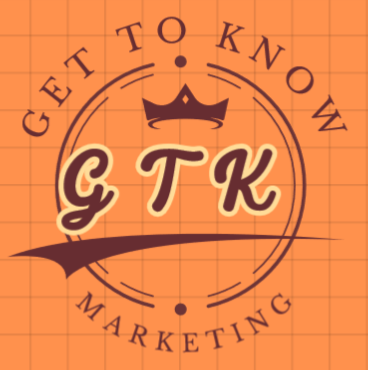The world of research is evolving rapidly, with AI-powered tools offering innovative ways to gather, synthesize, and manage information. While NotebookLM is a popular choice for researchers, several alternatives exist that cater to different research needs. This blog will introduce you to a range of AI research assistants, note-taking apps, and document management tools, each with unique features. These tools can assist you in extracting data, summarizing content, and enhancing workflow efficiency.
1. Layer: Connecting Information Across Sources
Layer is an AI research assistant designed to help researchers explore data from multiple sources and establish connections between seemingly unrelated pieces of information. For example, a user studying climate change might pull data from academic papers, government reports, and news articles, then use Layer to find common threads or key discrepancies in the findings. This ability to cross-reference and synthesize diverse sources can dramatically improve research efficiency, particularly in fields that rely on interdisciplinary data.
2. Genei: Automated Insights and Reports
If generating reports and uncovering hidden insights is your priority, Genei might be the tool for you. Genei uses AI to automatically generate summaries and insights from large bodies of research material, allowing you to quickly pinpoint the most relevant information. For example, a student working on a literature review for their thesis could use Genei to summarize key points from hundreds of journal articles, making the research process less time-consuming and more focused.
3. Tavily: Streamlining Research Workflows
Similar to Layer and Genei, Tavily is another AI-powered research solution that aims to simplify the process of gathering, organizing, and synthesizing information. It’s ideal for researchers needing a tool that integrates well with other platforms and offers collaboration features, such as shared workspaces where multiple users can contribute to the same research project.
4. Labnote AI: Easing Lab Workflows
For researchers working in labs, Labnote AI is an invaluable tool. It’s specifically designed to ease lab-life tasks by automating workflows such as experiment tracking, result documentation, and data analysis. For example, a lab technician could use Labnote to automatically log the results of an experiment and compare them with past data, eliminating hours of manual entry and ensuring a seamless flow of information.
5. WhizFolders: Organized Note-Taking for Researchers
If your research requires extensive note-taking, WhizFolders is a reliable option. It allows users to outline and organize their notes hierarchically, making it easier to structure and review large amounts of information. For instance, a historian analyzing a broad topic like “The Renaissance” could create a detailed outline of subtopics and sources, ensuring nothing is overlooked during their analysis.
6. Voicenotes: Transcribing Ideas Effortlessly
Voicenotes is an app that offers voice recording capabilities paired with automatic transcription and AI-powered interaction. If you’re a researcher who likes to record ideas on the go, Voicenotes makes it easy to capture thoughts verbally, have them transcribed, and later search or interact with the content using AI. This is particularly useful for brainstorming or recording interviews, allowing researchers to focus on ideas instead of typing.
7. Ideaflow Notes: Instant Capture with AI
Ideaflow Notes is another AI-powered notebook solution, emphasizing instant idea capture. It allows users to quickly jot down thoughts, use voice notes, and organize content seamlessly. This can be useful for creative researchers who need to capture fleeting thoughts or inspirations and later organize them into structured research outlines.
8. Paperwork: Open-Source, Privacy-Focused Note Management
If privacy and control over data are essential for your research, Paperwork might be the perfect fit. As an open-source, self-hosted alternative to platforms like Evernote and Google Keep, Paperwork allows researchers to manage their notes and documents with complete control over their data. This is especially appealing for those handling sensitive information, such as medical research or proprietary corporate data.
9. Obsidian, DEVONthink, and Apple Notes: Note-Taking with AI Potential
While not explicitly AI-powered yet, tools like Obsidian, DEVONthink, and Apple Notes have become popular in research circles for their flexibility and robust note-management features. These apps are expected to integrate AI capabilities in the future, potentially offering features such as automated summarization, enhanced search functions, and content organization. For researchers already invested in these platforms, they may offer a more seamless transition into AI-enhanced workflows.
10. Claude by Anthropic: AI with a Larger Context Window
Lastly, Claude by Anthropic stands out by offering a larger context window, making it ideal for tracking extensive conversations or research discussions. Suppose you’re collaborating on a complex project that involves multiple ongoing conversations; Claude’s ability to keep track of these dialogues over time can help ensure that important points aren’t lost, and discussions remain focused.
Choosing the Right Tool for Your Research Needs
When selecting an AI tool for research, consider the following factors:
- Specific research needs: Do you need data extraction, summarization, or collaboration features?
- Privacy and data security: Are you handling sensitive data that requires extra protection?
- Integration with existing workflows: Does the tool integrate well with the software you already use?
- Availability of AI features: How important are advanced AI capabilities like automatic summarization or voice transcription?
- User interface and ease of use: Is the tool intuitive, or does it have a steep learning curve?
The AI research landscape is constantly evolving, with new tools emerging regularly. While NotebookLM is a strong choice, exploring alternatives like Layer, Genei, and Labnote AI might reveal features that better align with your specific research tasks. Each of these tools offers unique strengths, helping you streamline workflows, enhance data analysis, and improve overall research productivity.
By assessing your specific needs and priorities, you can choose the AI-powered tool that will best enhance your research process.
